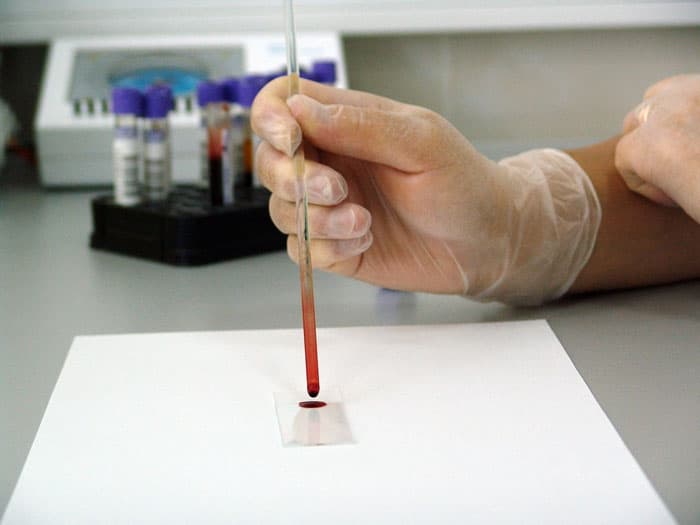
This post provides detailed information on the clinical trial assistant job description, including the key duties, tasks, and responsibilities they commonly perform.
It also highlights the major requirements you may be asked to meet to be hired for the clinical trial assistant role by most recruiters/employers.
Clinical trials play a role in the field of research and drug development.
They serve as a means to assess the safety and effectiveness of treatments for use.
Conducting these studies involves the efforts of individuals with diverse skills and backgrounds. Among these roles clinical trial assistants hold importance.
Clinical trial assistants provide support to research teams by coordinating and managing aspects of clinical trials.
Their responsibilities may vary depending on the phase of the study, therapeutic area and size of the site. However, their overarching role remains integral in ensuring efficient operations throughout the process – from recruiting participants to collecting data.
What Does a Clinical Trial Assistant Do?
Clinical trial assistants play a role that involves supporting research teams throughout the process of executing and managing clinical trials.
Common job titles for individuals in this position include clinical research assistant and clinical study assistant.
Typically, clinical trial assistants report to either a clinical trial manager or a clinical research coordinator.
They work across settings such as pharmaceutical companies, contract research organizations (CROs) academic medical centers, hospitals, and clinics.
A Bachelor’s degree in a science or healthcare field is typically required to qualify for this role.
Moreover, obtaining the Certified Clinical Research Professional (CCRP) certification is highly beneficial.
The clinical trial assistant job description involves participant recruitment, data collection, coordinating study visits, processing samples, and maintaining regulatory binders.
It also entails performing duties such as supply management, budget assistance, ethics submissions, site initiation, and quality control.
The clinical trial assistant role is essential for ensuring clinical trials adhere to protocols and good clinical practice guidelines.
Strong organization, attention to detail, communication, and computer skills are preferred by employers.
Regulatory bodies like the FDA, EMA, MHRA, OHRP, and GCP provide oversight for clinical trials.
Clinical trial assistants are the backbone of research teams, enabling complex clinical studies through their diligent coordination and support.
Clinical Trial Assistant Job Description Example/Sample/Template
The clinical trial assistant job description consists of the following duties, tasks, and responsibilities:
- Assist with participant recruitment activities such as prescreening, informed consent, and enrollment
- Schedule participant study visits and coordinate travel if needed
- Collect clinical trial data and specimens according to protocol
- Process, label, and ship specimens to central labs. Maintain shipment logs
- Administer study drug to participants following dispensing procedures
- Monitor and record adverse events and side effects reported by participants
- Maintain regulatory documents, including ethics submissions, site contracts, and essential documents binders
- Assist with preparing ethics amendment submissions and renewals
- Coordinate investigational product management including inventory, accountability logs, and destruction
- Perform randomization and unblinding procedures per protocol specifications
- Assist with data entry, cleaning, and queries in the EDC system
- Organize site initiation visits and coordinate staff training as needed
- Create study calendars and reminders for participant visits and follow-up
- Manage study supplies and track inventory and reorders
- Submit serious adverse event reports to sponsors and regulatory bodies
- Coordinate shipments of monitoring reports and other study documents
- Assist with preparation of site payments and study expense tracking
- Participate in internal and external audits to ensure GCP compliance
- Perform quality control on case report forms and study documents
- Communicate with study sponsors, CROs, and vendors regarding trial needs
- Maintain study databases, files, and archiving systems
- Participate in study team meetings and trainings
- Provide general administrative support for clinical research staff
- Coordinate translation services for non-English speaking participants
- Provide guidance and assistance to participants throughout trial completion.
Clinical Trial Assistant Job Description for Resume
If you have worked before as a clinical trial assistant or are presently working in that role and are making a new resume or CV, then you can create an effective Professional Experience section by applying the sample clinical trial assistant job description provided above.
You can highlight the duties and responsibilities you have carried out or are currently performing as a clinical trial assistant in your resume’s Professional Experience by utilizing the ones in the clinical trial assistant job description example above.
This will assure the recruiter/employer that you have been successful performing the clinical trial assistant duties and responsibilities and enhance your chances of being hired, especially if the new job that you are seeking requires some work experience as a clinical trial assistant.
Clinical Trial Assistants Requirements: Skills, Knowledge, and Abilities for Career Success
Clinical trial assistants require a specific set of skills, knowledge, and abilities to effectively coordinate and manage clinical trials. These key competencies, which are usually required by recruiters/employers when hiring for the position include:
- Organization and attention to detail: Ability to track and manage large amounts of information and juggle multiple tasks
- Communication skills: Communicate clearly with research participants, staff, sponsors, and vendors
- Problem-solving skills: Identify issues proactively and develop solutions
- Teamwork and collaboration: Work cooperatively with all study team members
- Computer literacy: Proficiency with MS Office, database management, EDC systems
- Analytical thinking: Interpret protocols, collect accurate data, identify errors
- Time management and prioritization: Meet deadlines and manage workload efficiently
- Stress management: Perform well under pressure and manage fluctuating workloads
- Regulatory knowledge: Understand and apply regulations, such as GCP, HIPAA, ISO, etc.
- Clinical research processes: Understand all aspects of clinical research coordination and execution
- Healthcare and scientific knowledge: It is important for clinical trial assistants to have an understanding of the field they are studying
- Participant care skills: Clinical trial assistants should possess compassion and show care when interacting with participants
- Training abilities: They need to be able to provide instructions and training to staff members.
By acquiring these competencies clinical trial assistants can offer support to their research teams and contribute to the success of clinical trials.
The role requires a combination of organizational, communication, regulatory, and interpersonal skills.
Clinical Trial Assistant Salary and Top Paying Locations
Based on data from the U.S. Bureau of Labor Statistics the average annual salary for clinical trial assistants was $58,103 as of May 2022.
Here are some states that offer the best salaries for clinical trial assistants:
- San Francisco, CA ($113,063)
- Seattle, WA ($100,612)
- Boston, MA ($97,756)
- New York, NY ($94,738)
- Elizabeth, NJ ($94,475).
Conclusion
Clinical trial assistants play a role in the execution of research studies. Their coordination and operational support are crucial in making complex trials possible.
Key responsibilities include recruitment, data collection, supply management and regulatory documentation.
Strong organization and communication skills along with an understanding of research contribute greatly to the success of these professionals.
With the growth of the pharmaceutical industry and medical research, there is increasing need for skilled clinical trial assistants.
Their attention to detail, compassion for participants, and grasp of regulations enable the delivery of rigorous, ethical, and successful clinical trials.
Their contributions ultimately help advance healthcare through the development of new treatments.
For those interested in entering this field, a science degree combined with clinical research certificate programs provides ideal preparation.
Hands-on internships and entry-level assistant roles build the experience to advance.
With dedication and the right competencies, clinical trial assistants can find rewarding careers that pave the way for medical discoveries.
This post is helpful to individuals interested in the clinical trial assistant career. They will be able to learn all they need to know about what clinical trial assistants do to decide if that’s the job they want to do.
It is also beneficial to recruiters/employers in making detailed job description for the clinical trial assistant position in their organizations for use in hiring for the role.












